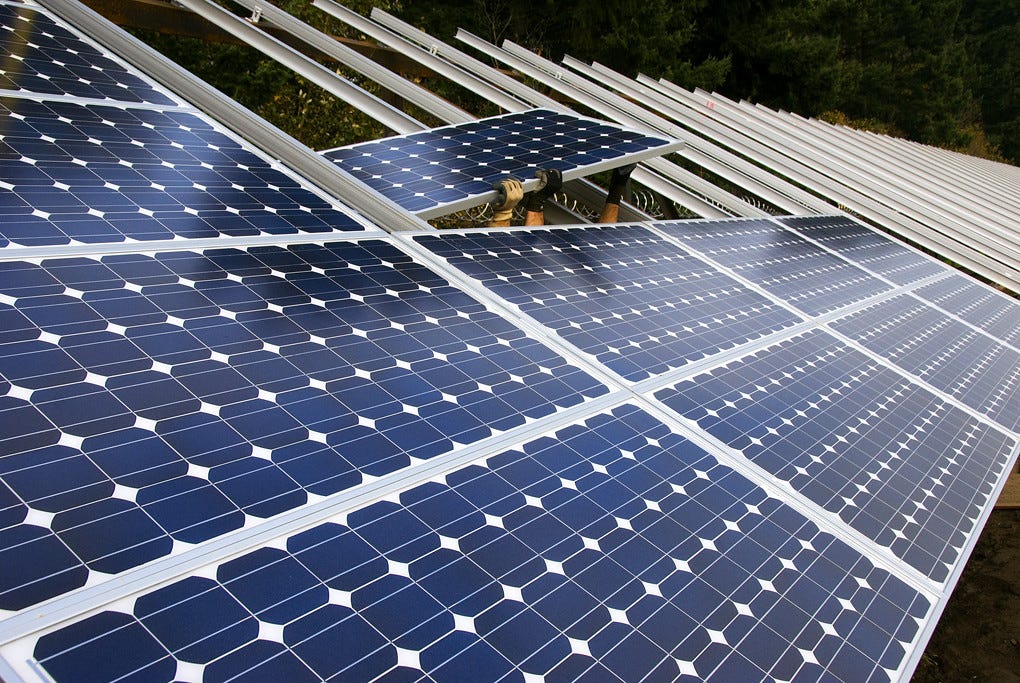The simpler, the better
When climate solutions get confusing, turn to Occam’s razor.
There’s more than one way to skin a cat, and there’s more than one way to solve climate change.
In the energy sector, there are popular solutions like wind and solar power. But you don’t have to kick the planetary tires too long before hearing of others, like nuclear, hydrogen, and carbon capture. Some even propose using natural gas to transition to a cleaner future.
So, who’s right? Enter Occam’s razor, a philosophical principle that argues the simplest explanation is usually the best. Occam’s razor is important because we can use it to guide investments in the right climate solutions. And do so quickly.
This last bit is important: For every year we waste investing in solutions that don’t pan out, we continue to burn fossil fuels and heat our Planet.
By applying Occam’s razor to the energy sector, we come out with a clear answer: Renewables always win.
Unlike nuclear, hydrogen, or carbon capture, wind and solar are cost-effective at scale. Compared to fossil fuels, they are safer, healthier, and even cheaper. They generate no pollution or waste. And with enough investment and political will, they can soon replace fossil fuel–burning plants.
In other words, renewables make too much sense not to use.
This isn’t unfounded idealism. Renewables can power our grid, charge our cars, cook our food, and warm our homes. And as batteries get better, the argument that the sun doesn't shine all the time or the wind doesn’t blow all the time falls flat. In other words, we already have the climate solution to almost single-handedly decarbonize our energy sector, which currently makes up 75% of global climate pollution.
This is great news! So why are we bothering with all that other stuff? Well, although Occam’s razor is rooted in evidence and logic, most political discourse is not.
Let’s look at the White House’s recent Earth Day memo, which offers a good case study in how we avoid the simplest solutions right in front of us.
In the memo, the White House emphasizes as a key environmental action “cutting-edge technologies like carbon capture and storage, nuclear energy, and next-generation geothermal,” even though much of these are exorbitantly expensive and unproven at scale.
Worse, the memo doubles down on fossil fuels, highlighting liquefied natural gas exports and oil and gas extraction.
Meanwhile, the memo ignores proven, cost-effective technologies like solar and wind, instead praising the administration’s earlier decision to pause wind projects.
I know the Trump administration doesn’t totally reflect the American electorate, who largely want more investments in renewables. But the arguments to expand oil and gas or invest in techno-optimistic climate solutions are echoed by policymakers across the political spectrum.
Under former President Joe Biden, the U.S. granted thousands of permits to drill for oil and gas on federal lands.
The Inflation Reduction Act, the U.S.’s largest climate law to date, includes hundreds of millions of dollars for nuclear power and sweeping tax credits for hydrogen fuel cell projects.
And bipartisan bills that support nuclear energy and carbon dioxide removal are not uncommon in Congress.
I’m all for using intellectual might to solve climate problems. And with tricky industries like steel and cement making, we’ll need some of these high-tech solutions to truly get down to net zero. But such complicated solutions shouldn't distract us from the cleaner and simpler ones that are already available.
By pushing for an “all of the above” energy policy, a phrase loved by most Republicans and some Democrats, we may divert our limited resources from simple solutions that actually work. Climate scientist Jonathan Foley, who has also written about using Occam’s razor for climate solutions, puts it this way:
“More complicated, high-tech solutions may eventually be game-changers, but they require long periods of research and development, along with facing significant economic and deployment hurdles. And many never arrive at all. And in a race to avoid planetary calamities, now is better than new.”
In other words, the more complicated energy solutions become, the more skeptical you should be. So when all else fails, remember one rule: the simpler, the better.



Great post, Brandon! I absolutely agree with you. I think of Occam’s razor often when faced with problems and decisions in my life. Let’s hope some members of Congress read your substack.